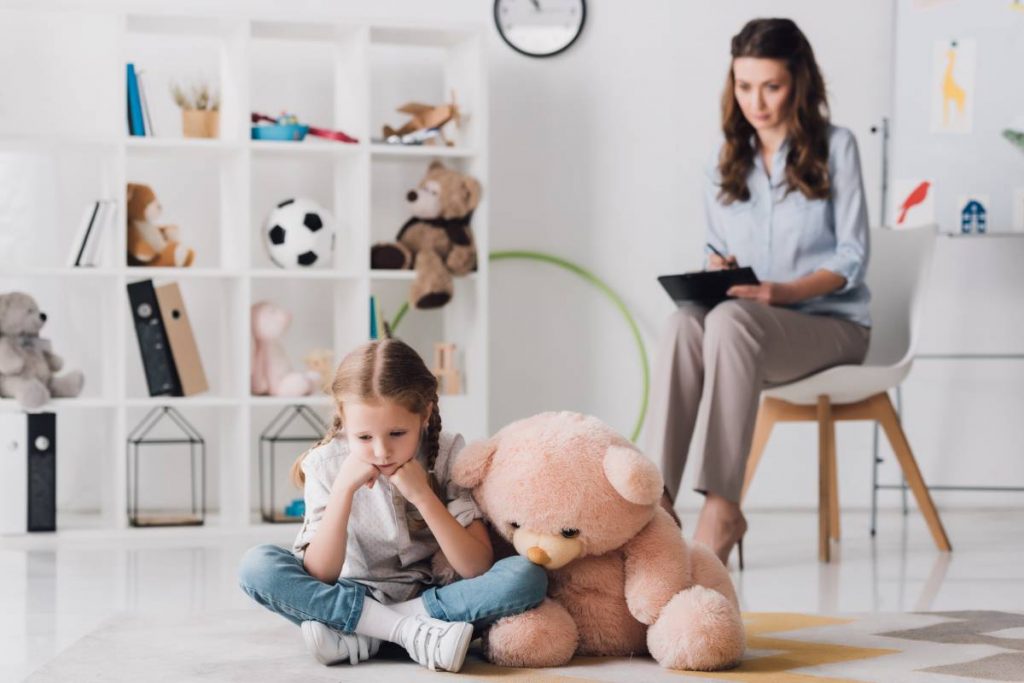Parenting is one of the most powerful influences in a child’s life, shaping their behavior, mental health, academic success, and relationships.
While no parent is perfect, the chosen parenting style—whether structured or neglectful can leave lasting impressions on a child.
This article explores how parenting affects child development, focusing on permissive and uninvolved styles to help caregivers choose approaches that support emotional security and confidence.
How Parenting Affects a Child’s Development
From infancy through adolescence, parenting provides the foundation upon which children build their understanding of the world and themselves. The emotional environment created by parents can either support or hinder a child’s growth in several key areas:
1. Emotional Development
Supportive and nurturing parenting fosters emotional security, helping children regulate their feelings and develop empathy. When children feel loved and understood, they are more likely to form healthy relationships and manage stress effectively.
2. Cognitive Development
Parental involvement in a child’s education, like reading, stimulating conversations, and encouraging curiosity, boosts academic achievement.
It helps develop problem-solving skills, critical thinking, and intelligence in psychology, which refers to mental abilities for problem-solving, adaptation, and learning.
Engaged parenting enhances cognitive development, fostering the ability to understand abstract concepts and apply knowledge, essential for academic success and social competence.
3. Social Skills
Children model their social behavior after their parents. Parenting that emphasizes respect, cooperation, and clear communication encourages children to develop strong interpersonal skills. Children from such environments tend to have better peer relationships and exhibit prosocial behavior.
4. Self-Esteem and Independence
Balanced parenting that supports autonomy while setting appropriate boundaries promotes confidence and independence. Children are more likely to take initiative, explore new opportunities, and bounce back from failures.
However, when parenting lacks structure, emotional support, or engagement, children may struggle with insecurity, low self-worth, or poor self-regulation. Different parenting styles, especially permissive and uninvolved, can have profound effects on these outcomes.
The Permissive Parenting Style and Its Impact
Permissive parenting is characterized by warmth and responsiveness but a lack of rules, discipline, and consistent boundaries. Permissive parents often act more like friends than authority figures, allowing their children significant freedom and avoiding confrontation.
Key Traits of Permissive Parenting:
- High emotional responsiveness and affection
- Low demands and few rules
- Rare enforcement of consequences
- Children allowed to make their own decisions at a young age
While the permissive style may seem loving and nurturing, it often leads to challenges in a child’s development.
Effects on Child Development:
- Poor Self-Discipline
Without clear rules or consistent consequences, children may struggle to develop self-control. They may find it difficult to regulate their emotions, resist temptations, or focus on tasks, leading to academic and behavioral issues. - Low Academic Performance
Children of permissive parents often lack motivation and perseverance in school. The absence of parental expectations or follow-through can result in poor study habits and underachievement. - Increased Risk of Behavioral Problems
A lack of boundaries can lead to impulsivity, defiance, and difficulty respecting authority. Children may act out to test limits or express unmet needs for structure. - Difficulty with Authority and Social Norms
Since permissive parents don’t consistently teach expectations or consequences, their children may struggle in structured environments like school or work settings where rules must be followed. - Lower Self-Esteem
Paradoxically, despite the emotional warmth, children may feel uncertain about their abilities. The absence of guidance can make them feel unsupported or neglected, leading to insecurity or anxiety.
Permissive parenting can work best when paired with intentional efforts to guide children through conversation and mutual respect, but without clear structure, it tends to result in children who are emotionally dependent and behaviorally immature.

Difference Between Permissive and Uninvolved Parenting
At a glance, permissive and uninvolved parenting may appear similar since both lack firm discipline. However, the core difference lies in emotional involvement.
Permissive Parenting:
- High emotional warmth
- Low expectations and structure
- Parents are responsive but not demanding
- Children often feel loved but lack guidance
Uninvolved Parenting (Neglectful):
- Low emotional warmth
- Low expectations and structure
- Parents are disengaged, indifferent, or overwhelmed
- Children often feel unloved, ignored, and unsupported
Uninvolved parenting is often considered the most harmful parenting style due to its consistent emotional and physical neglect. These parents may provide for basic needs such as food and shelter but fail to offer love, involvement, or supervision.
Effects of Uninvolved Parenting:
- Emotional Insecurity
Children raised by uninvolved parents often feel abandoned or unworthy of attention. This can lead to depression, anxiety, and attachment disorders. - Low Cognitive and Academic Achievement
Lack of parental engagement usually results in poor school performance. Children may lack motivation, resources, and encouragement to succeed. - High Risk of Risky Behavior
Children may turn to peers, media, or harmful behaviors like substance use to fill the emotional void. They are at greater risk of delinquency and addiction. - Poor Social Skills and Self-Esteem
With no guidance in forming relationships or handling conflict, these children may struggle to make friends or maintain healthy relationships in adulthood.
Conclusion
Parenting is one of the most influential factors in a child’s development. While every parent has a different style shaped by culture, upbringing, and personality, the balance between warmth and discipline is critical.
Permissive parenting, though loving, can hinder a child’s development if structure and expectations are lacking. Uninvolved parenting, on the other hand, deprives a child of both emotional connection and guidance, which can severely impact their well-being.
Understanding these styles helps caregivers reflect on their approach and make informed decisions that promote healthy emotional, cognitive, and social development. The goal is not perfection but intentional parenting being present, consistent, and responsive—so that children grow into capable, confident, and caring adults.





